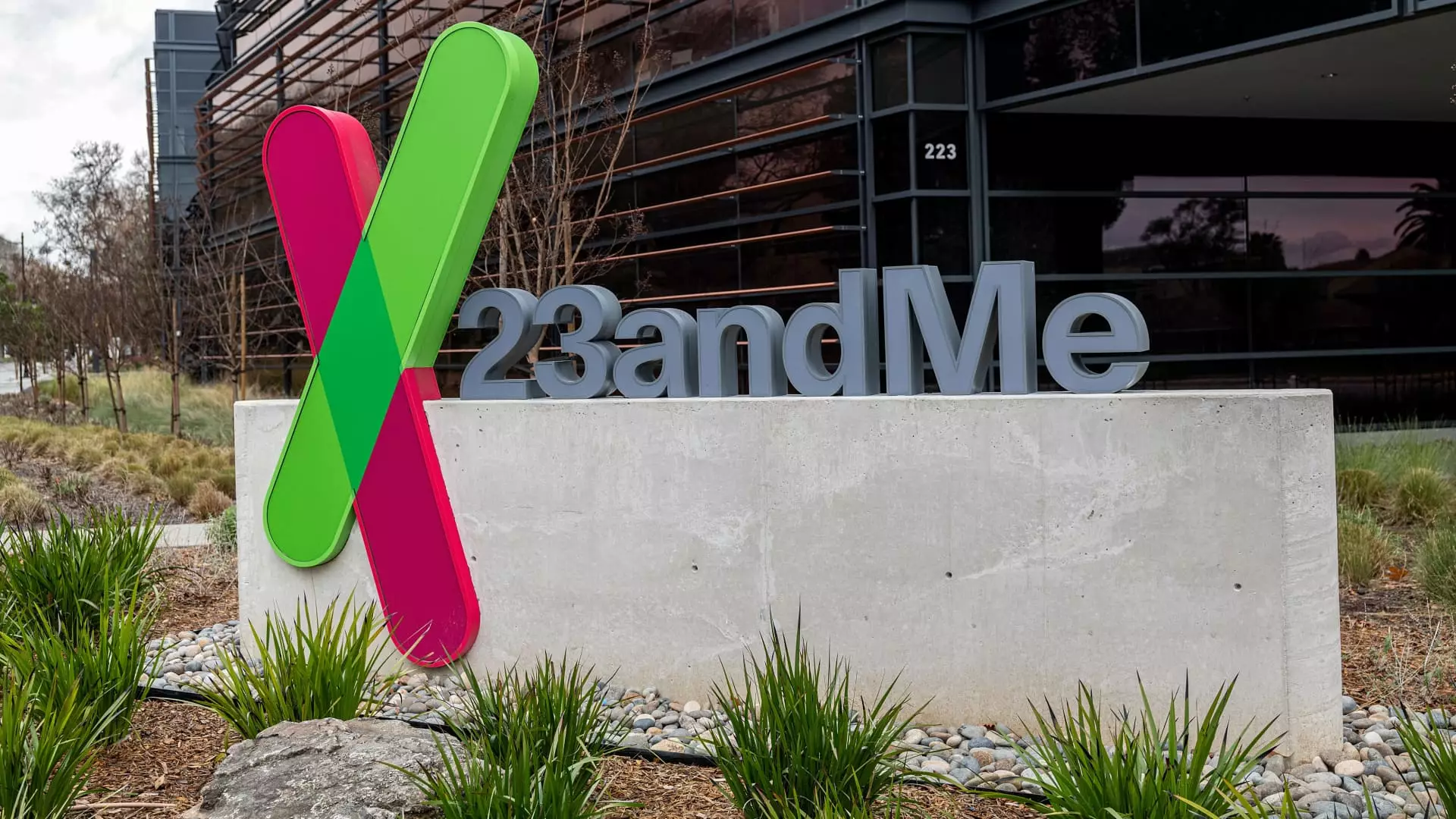23andMe, a pioneer in the direct-to-consumer genetics testing industry, has officially filed for Chapter 11 bankruptcy, igniting widespread concern among its users regarding data privacy and protection. The company, revered for its ability to provide customers with insights into their ancestry and genetic traits, now faces the daunting task of selling its most valuable asset: the extensive genetic database it has amassed over the years. As the organization seeks a partner who shares its dedication to customer privacy, questions arise regarding the implications of such a pivotal moment in the field of genetic testing.
The Data Dilemma
The sensitive nature of DNA data cannot be overstated. Each individual’s genetic sequence is not only unique but an irreplaceable marker of personal identity, making it a coveted target for hackers and malicious actors. As highlighted by the National Human Genome Research Institute, the notion of fully anonymizing genetic information is a fallacy — once released, this data can be manipulated for nefarious purposes, including identity theft and insurance fraud. The very fabric of personal identity is now intertwined with corporate responsibility, raising ethical dilemmas that Consumers were unaware of when they opted for genetic testing services.
The bankruptcy filing comes hot on the heels of a large-scale data breach in October 2023, during which nearly 7 million customers had their information compromised. Such incidents have led to heightened distrust among consumers regarding how their data is stored, managed, and ultimately protected. Many users are now faced with the unsettling prospect of their genetic information landing in the wrong hands amid this financial upheaval.
Consumer Vigilance: A Necessary Response
Given 23andMe’s precarious financial standing, California Attorney General Rob Bonta has raised alarms about the potential risks to consumers. His advisory encourages customers to consider their rights to delete their genetic data from the platform altogether. This is not simply a precaution; it is a fundamental consumer protection strategy in an increasingly vulnerable digital landscape.
“With the reported financial distress, consumers must take control of their data,” Bonta stated, prompting users to actively demand the deletion of their genetic information. Such guidance highlights the urgent need for consumers to engage with the companies they trust with their most sensitive information and to be proactive in maintaining their privacy.
Experts like Adrianus Warmenhoven, a member of the security advisory board at NordVPN, echo these sentiments by urging users to regularly monitor their digital footprints. By emphasizing the importance of vigilance and the possible dangers of genetic data exposure, he encourages consumers to not only delete their unused accounts but also to be discerning about future interactions with genetic services.
The Path Forward for 23andMe Customers
23andMe has reassured users that they can still opt to delete their accounts and erase their personal data from the company’s records. In a straightforward process, customers are encouraged to navigate the website and initiate the deletion with clear instructions provided by the company. This suggests that despite the company’s financial crisis, maintaining user control over personal data remains a priority within the operational structure.
However, the reality of this situation is far more complex than a simple deletion process. The company’s reassurances carry weight, but they do not erase the overarching anxiety consumers experience when dealing with their most private information. Even if the deletion process is completed, the knowledge that sensitive genetic data was at risk remains unsettling.
Shifting Attitudes Toward Genetic Privacy
The events surrounding 23andMe’s bankruptcy spotlight a critical moment in societal attitudes toward genetic data privacy. As consumers become more aware and educated about the implications of sharing such sensitive information, it raises questions about the future of direct-to-consumer DNA testing. Are today’s consumers willing to continue exchanging health insights for the risk of data compromise? As this discussion evolves, the forthcoming landscape of genetic testing services will undoubtedly require a steadfast commitment to ethics, transparency, and consumer trust.
In this rapidly shifting digital domain, the onus is increasingly placed on individuals and companies alike to navigate these complexities with caution, ensuring that the delicate dance between innovation and privacy does not infringe upon personal rights. When it comes to genetic data, the need for vigilance, transparency, and ethics never has been more critical.

